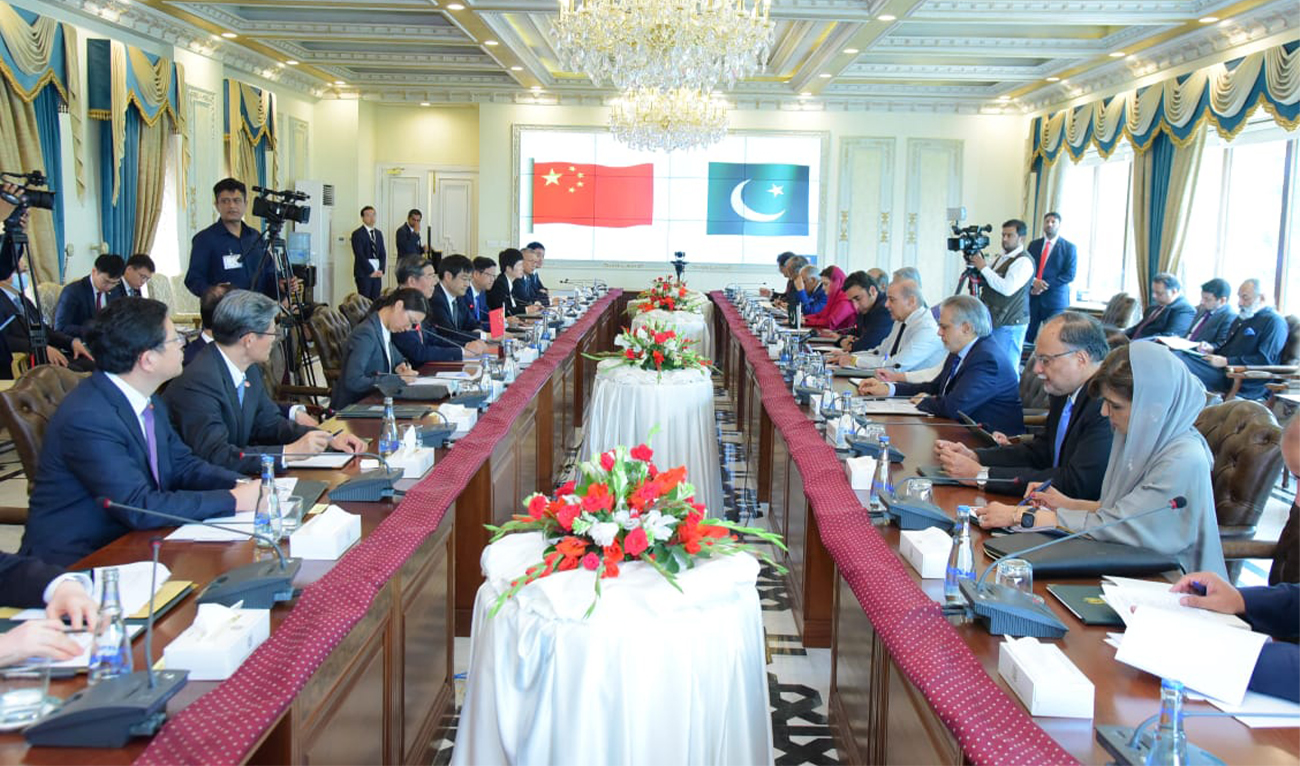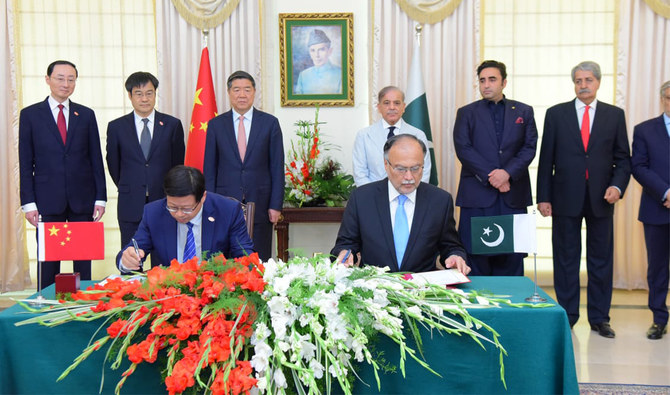ISLAMABAD: Pakistan and China on Monday signed six agreements to enhance bilateral cooperation, with Prime Minister Shehbaz Sharif saying these would play a significant role in further promoting strong economic ties between the two brotherly countries.
The agreements were signed at a ceremony at PM Sharif’s office in the Pakistani capital after a meeting between Sharif and Chinese Vice-Premier He Lifeng, who is on a three-day visit to the Pakistani capital of Islamabad to mark 10 years of the multi-billion-dollar China-Pakistan Economic Corridor (CPEC).
CPEC, a major segment of Beijing’s Belt and Road infrastructure initiative, is a $65 billion network of roads, railways, pipelines and ports in Pakistan that will connect China to the Arabian Sea and help Islamabad expand and modernize its economy, with the Gwadar port city in Balochistan as the epicenter of it.
“I have no doubts that we are entering into the second phase of CPEC and today we have signed certain important documents which will further enhance our economic cooperation where we will undertake a second phase of CPEC under a new model,” Sharif said after the ceremony.
“It will be B2B (business-to-business), it will be investments in agriculture, in information technology so that Pakistan, through Chinese cooperation and support, is able to export its items according to the requirement and standards of the Chinese government.”

Pakistani and Chinese officials hold delegation level talks in Islamabad, Pakistan, on July 31, 2023. (PID)
Pakistan’s Planning Minister Ahsan Iqbal and Cong Liang, vice-chairman of China’s National Development and Reforms Commission, signed two vital agreements pertaining to the joint cooperation committee of CPEC and the establishment of an experts exchange mechanism within the CPEC framework.
On the occasion, a protocol was signed for the export of dried chillies from Pakistan to China, while a document concerning realignment of the Karakoram Highway Phase II project feasibility study was signed by Pakistan’s National Highway Authority (NHA) planning member Asim Amin and the Chinese charge d’affaires, Pang Chunxue. Both sides signed two memorandums of understanding (MoUs) for the Industrial Workers’ Exchange Program and to promote the strategic Main Line-1, or ML-1, railway track upgradation project.
Under CPEC, Sharif said, more than $25 billion worth of investment had taken place in Pakistan’s power sector, infrastructure and transport sectors. Pakistan was absolutely ready to contribute toward Chinese President Xi Jinping’s vision of shared destiny of progress and prosperity, he added.
“The ML-1 and Karachi Circular railway system are very important projects and I have no doubts that together in time to come, we will successfully achieve these projects and many others,” he said, adding it would make Pakistan stand on its own feet through sacrifice, hard work and undying efforts.
Separately, Pakistani President Arif Alvi bestowed the Chinese vice-premier with the ‘Hilal-e-Pakistan’ award during a ceremony at the presidency in recognition of his significant contributions to CPEC.
In the afternoon, the Chinese delegation would attend a ceremony, themed as the ‘Decade of CPEC,’ with the Chinese vice-premier as the chief guest.






















